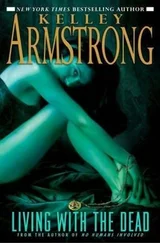Håkan Nesser - The Living and the Dead in Winsford
Здесь есть возможность читать онлайн «Håkan Nesser - The Living and the Dead in Winsford» весь текст электронной книги совершенно бесплатно (целиком полную версию без сокращений). В некоторых случаях можно слушать аудио, скачать через торрент в формате fb2 и присутствует краткое содержание. Год выпуска: 2013, Издательство: Mantle, Жанр: Криминальный детектив, на английском языке. Описание произведения, (предисловие) а так же отзывы посетителей доступны на портале библиотеки ЛибКат.
- Название:The Living and the Dead in Winsford
- Автор:
- Издательство:Mantle
- Жанр:
- Год:2013
- ISBN:нет данных
- Рейтинг книги:4 / 5. Голосов: 1
-
Избранное:Добавить в избранное
- Отзывы:
-
Ваша оценка:
- 80
- 1
- 2
- 3
- 4
- 5
The Living and the Dead in Winsford: краткое содержание, описание и аннотация
Предлагаем к чтению аннотацию, описание, краткое содержание или предисловие (зависит от того, что написал сам автор книги «The Living and the Dead in Winsford»). Если вы не нашли необходимую информацию о книге — напишите в комментариях, мы постараемся отыскать её.
The Living and the Dead in Winsford — читать онлайн бесплатно полную книгу (весь текст) целиком
Ниже представлен текст книги, разбитый по страницам. Система сохранения места последней прочитанной страницы, позволяет с удобством читать онлайн бесплатно книгу «The Living and the Dead in Winsford», без необходимости каждый раз заново искать на чём Вы остановились. Поставьте закладку, и сможете в любой момент перейти на страницу, на которой закончили чтение.
Интервал:
Закладка:
Because something was afoot. Something was happening down there on that Greek fairy-tale island: one didn’t need to be a raven to understand that.
Nothing sensational happened during the rest of the 1978 stay. Martin describes the final week in his usual restrained manner: Hyatt and Herold are only mentioned in passing, Halvorsen and Soblewski rather more often. The day before Martin travels back to Sweden he and those other two go for quite a long walk along a ravine in the mountains, and Martin really does his best to record his impressions. The recurrent theme is that it is strenuous and terribly hot. And that Halvorsen has chafed feet and has to be more or less carried the last part of the homeward trek.
By the following summer, July-August 1979, the situation has changed somewhat. Martin is no longer living with the so-called collective. Instead he is lodging in a small house just a stone’s throw away from Herold’s and Hyatt’s villa. He lives there for five weeks with various different people who come and go, but Soblewski arrives after a week and is still there when Martin goes home, and not long after Soblewski somebody called Grass turns up. I guess that he might well be the person hiding behind the pseudonym G — well, I suppose in fact I decide that is the explanation, and for some reason it comes as a relief. He is a writer and media researcher, originally from Monterey in California, but currently based in Europe.
The house they share seems to accommodate up to eight people: couples or women live in two of the rooms, and after Soblewski’s arrival he and Martin share a room for the rest of their stay. There is a kitchen, a toilet and outside shower: on the whole the place is an improvement on where they lived in previous summers.
The fact that they are closer to Hyatt and Herold is obvious, and it is not just Martin skewing matters to give that impression. By this time the couple are famous and worldwide celebrities, and the main reason for this is Bessie Hyatt’s debut novel. Her second (and last) book, Men’s Blood Circulation , has been edited and proof-read and will be published in the English-speaking world in October. Martin writes that all kinds of journalists and paparazzi ‘are crawling around the pine-clad hillsides like cockroaches,’ but that Tom Herold in particular makes sure that ‘not so much as a bloody autograph-hunter crosses over the bridge.’
Grass turns out to be an old acquaintance of Bessie Hyatt’s. They evidently come from the same part of California, went to high school together, and there might even be closer ties although Martin doesn’t succeed in uncovering them. In any case there is a lot of socializing with the hosts: I gather that there is a group of six, in addition to Hyatt and Herold, who generally spend the long evenings on that famous terrace ‘with views over the pine trees, the cypresses, the beach, the sea, the setting sun: if it is true that human beings are the creatures the Creator produced so that they could observe and admire one another, this is the right place and we are the chosen people’ (sic!). The half-dozen comprise: Martin, Soblewski, Grass, the German women writers from the previous year (Doris Guttmann and Gisela Fromm) and the inevitable Russian Gusov. Occasionally also Bruno, who is still playing the role of a sort of caretaker and hence seems to be degraded to a kind of second-rate citizen. That is not something stated by Martin, but a conclusion I have reached. Other people occasionally also appear on the terrace, of course: for two evenings the icon Allen Ginsberg is a house guest, and a week later Seamus Heaney joins the party — the Irishman who is awarded the Nobel Prize sixteen years later.
And these lengthy sessions, with Greek snacks served up in a never-ending stream by the housekeeper Paula, with boutari wine and retsina, with ouzo and tsipouro and beer, with witty discussions on Existentialism and hermeneutics, on Kuhn and Levinas, Baader-Meinhof and Solzhenitsyn and the Devil and his grandmother, with guitars and bouzoukis, these orgies in hyper-intellectual exuberance and Gauloise cigarettes with or without extras — well, as far as I can judge these happenings take place every evening, week after week, and usually end up with a group of participants trudging down to the beach about an hour or so after midnight for a session of skinny-dipping. For Christ’s sake, this is heaven for a streber like Martin Holinek, a twenty-six-year-old research assistant from Stockholm in the backwoods of ultima Thule. For Christ’s sake.
And on the heavenly throne the couple themselves: the British poet that everybody was talking about, and his fifteen-year-younger American wife. ‘If anybody around this table might be considered to have come from Olympus, if any one of us were a reincarnated goddess,’ writes Martin in a moment of poetic inspiration, ‘she would certainly be the one.’
Whence Tom Herold had been reincarnated was less clear: Martin found it difficult to describe him in words. It is quite obvious that this is connected with almost histrionic respect, but it is three weeks later before a note suggests that something is not really as it should be.
‘There is something about Herold that makes me pause and think,’ he writes on the thirteenth of July. ‘There is no doubt that his temperament is a handicap, both for Bessie and for himself. Last night he stood up and left the table in a fit of anger — it was after something that Grass had said and that I didn’t catch on to, and afterwards Grass was reluctant to discuss. Bessie remained in her seat and tried to keep up appearances, but I could see that she was upset. After a while she apologized and withdrew: Soblewski and I took the opportunity of doing the same. This was the first time since I’d been on the island that I’d got to bed before midnight. Every cloud has its silver lining.’
A few days later he writes about another controversy on the terrace. A young American poet is visiting; Martin writes that he and Bessie Hyatt evidently find a lot to talk about, but that Tom Herold, after having consumed a sufficient amount of retsina, is unable to contain his irritation. Bessie apparently defends her table companion — his name is Montgomery Mitchell and Herold makes fun of the name: it all ends with Herold taking his wife by the arm and dragging her away from the table. They return after a while, ‘Bessie seems cowed and helpless,’ Martin writes. The mood feels subdued and uneasy, it’s only Gusov who fails to register the situation. He encourages all present to sing Theodorakis songs in Greek, and before long has most people joining in.
Many of the later diary entries for this last summer on Samos deal with this topic: how Martin interprets the manoeuvring between Herold and Hyatt. He speculates quite a lot as well. Is there an illicit affair in the background? Is there something going on between Bessie and Mitchell — he stays on for more than a fortnight after all? Or between Bessie and Grass? Martin talks quite a lot to this Grass character (without using the abbreviation G, however), who claims to have known Bessie inside out from his childhood onwards, and he confirms that the facts are what Martin has suspected. She is not happy with her considerably older husband, who wants to control her more and more. Grass maintains that there is both jealousy and envy involved: from a literary point of view Herold feels that he is being outshone by his beautiful wife, and no matter how much he pretends to enjoy her success, there seem to be different emotions lurking in the background. But Bessie says nothing at all about it, not to Grass or to anybody else. ‘This is going to be a disaster, that pompous poet is a bloody big time bomb ticking away,’ Martin notes that Grass commented in early August. ‘We ought to rescue her,’ he says at another point, ‘but how the hell do you rescue somebody who doesn’t want to be rescued?’
Читать дальшеИнтервал:
Закладка:
Похожие книги на «The Living and the Dead in Winsford»
Представляем Вашему вниманию похожие книги на «The Living and the Dead in Winsford» списком для выбора. Мы отобрали схожую по названию и смыслу литературу в надежде предоставить читателям больше вариантов отыскать новые, интересные, ещё непрочитанные произведения.
Обсуждение, отзывы о книге «The Living and the Dead in Winsford» и просто собственные мнения читателей. Оставьте ваши комментарии, напишите, что Вы думаете о произведении, его смысле или главных героях. Укажите что конкретно понравилось, а что нет, и почему Вы так считаете.












